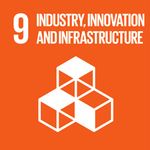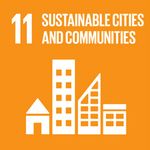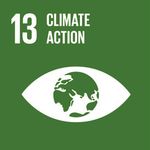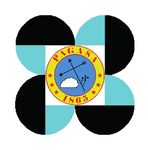Weather and Climate Science for Service Partnership Programme - Met Office
←
→
Page content transcription
If your browser does not render page correctly, please read the page content below
Weather and Climate Science for
Service Partnership Programme
Strengthening the resilience of vulnerable communities
to weather and climate variability
Exposure to extreme weather and climate events threatens the sustainability of economic development and social welfare
across the globe, and the securities on which we rely for our health and well-being. In line with the Global Framework for
Climate Services, the UN-wide initiative to enable better management of climate risks, we work in partnership to develop
targeted climate services.
With the support of the Newton Fund, the Weather and Climate Science for Service Partnership (WCSSP) programme is
developing a global network of projects and partnerships that harness the scientific expertise needed to strengthen the
resilience of vulnerable communities to weather and climate variability. WCSSP projects aim to develop strong international
partnerships, connecting the best scientific expertise.
Collaborative weather and Addressing regional climate
climate services for South Africa vulnerability in China
The Weather and Climate Science for Service The Climate Science for Service Partnership
Partnership in South Africa (WCSSP South Africa) China (CSSP China) has been formed by the
is a collaboration between the Met Office, the China Meteorological Administration, Institute of
South African Weather Service (SAWS) and other Atmospheric Physics at the Chinese Academy of
key UK institutes. Sciences and the Met Office, and other key UK and
Chinese institutes.
WCSSP South Africa strengthens links between the
UK and South Africa, drawing on UK capability and China experiences extreme conditions such as heavy
expertise, and creating sustainable relationships for rainfall, flooding, tropical cyclones, heatwaves and
long-term collaboration. It aims to protect life and drought, potentially affecting food and water security
property through improved weather and climate and leading to increased impact of natural disasters.
services based on user needs. It is improving high- The partnership is developing an understanding of the
resolution weather forecasting capabilities and key needs for climate service development in China
enhancing the capability within SAWS to deliver and the relevant underpinning science required. It
severe weather warnings, improve forecast service has so far focused on four key sectors: energy, urban
delivery and to facilitate development of services to environments, agriculture/food security, and water
specific sectors that support economic development resources. As the underpinning science develops the
and social welfare. The project is also supporting partnership is increasing the capacity to translate
disaster risk reduction (DRR) through impact-based science into services that could impact decisions
weather forecasting. affecting people’s welfare and livelihoods.Improving climate modelling in Brazil
The Climate Science for Service Partnership Brazil (CSSP Brazil) supports the development of capability to underpin
services to inform decision makers in climate mitigation and adaptation strategy. Through CSSP Brazil we are building
strong, sustainable partnerships with Brazil’s National Institute for Space Research, National Institute for Amazon
Research and the National Centre for Monitoring and Early Warning of Natural Disasters, as well as other key UK and
Brazilian scientific institutes.
CSSP Brazil focuses on three main research areas: improved carbon cycle modelling to inform mitigation policy;
climate model development; and climate impacts and disaster risk reduction. The partnership aims to provide robust
science background for mitigation policy through improved quantification of the global carbon cycle, including
natural carbon sinks which are important for ‘overshoot and recovery’ climate scenarios. This can inform the Brazilian
Government Working Group on REDD+ and preparation of the Third National Communication on Greenhouse Gas
Emissions to the United Nations Framework Convention on Climate Change, on the land use, land-use change and
forestry (LULUCF) sector.
Understanding the South Asian Supporting the United Nations
monsoon to develop improved Sustainable Development Goals
forecast products The United Nations Sustainable Development
Goals (SDGs) represent a global commitment to
The Weather and Climate Science for Service
transform the world to a sustainable and resilient
Partnership India (WCSSP India) project was
path to development, focussing on areas of critical
launched in 2019 and is a collaborative
importance for humanity and the planet. With the
initiative between the Met Office and the
support of the Newton Fund, the Weather and
Indian Ministry of Earth Sciences (MoES).
Climate Science for Service Partnership programme
WCSSP India hopes to form strong,
(WCSSP) contributes to the SDGs.
sustainable partnerships between
UK and India scientists to enhance
research and development
programmes to better understand
monsoons, helping towards
delivering improved risk-based
weather and climate products.CASE STUDY
Advancing scientific
understanding in Southeast Asia
The Weather and Climate Science for Science Improving regional accuracy of
Partnership in Southeast Asia (WCSSP Southeast
Asia) is a regional project involving three partner short-range weather forecasts
countries: Indonesia, Malaysia and the Philippines. As part of the Weather and Climate Science for
WCSSP Southeast Asia brings together the Met Service Partnership (WCSSP) South Africa supported
Office with the Indonesian Agency for Meteorology, by the Newton Fund, the South African Weather
Climatology and Geophysics (BMKG), the National Service is working to upgrade and improve the
Disaster Management Agency (NaDMA), and quality of its weather forecasting activities and has
the Philippine Atmospheric, Geophysical and implemented high resolution numerical weather
Astronomical Services Administration (PAGASA). prediction (NWP) models. This has enabled more
WCSSP Southeast Asia is jointly developing and detailed and regionally accurate short-range
improving underpinning capability in global and weather forecasts to be developed and has led
regional forecasting systems, and advancing the to further NWP model improvements in both
understanding of high-impact weather events in South Africa and the UK. This development has
order to provide better advice of such events and led to improvements in the quality and accuracy
mitigate the socio-economic impact. of weather guidance provided to government,
businesses and communities within South Africa.
Promoting economic development and social welfare
The Newton Fund builds research and innovation partnerships with 17 active partner countries to support their
economic development and social welfare, and to develop their research and innovation capacity for long-term
sustainable growth. It has a total UK Government investment of £735 million up until 2021, with matched resources
from the partner countries.
The Newton Fund is managed by the UK Department for Business, Energy and Industrial Strategy (BEIS), and delivered
through 7 UK delivery partners, which includes UK Research and Innovation (comprising the 7 research councils and
Innovate UK), the UK Academies, the British Council and the Met Office.
For further information visit the Newton Fund website (www.newtonfund.ac.uk)
and follow on Twitter: @NewtonFund
For further information on the WCSSP programme visit our website (www.metoffice.gov.uk/newton)
and follow us on Twitter @metofficeww
Produced by the Met Office. Met Office and the Met Office logo are registered trademarks. © Crown Copyright 2019, Met Office 01094You can also read



























































